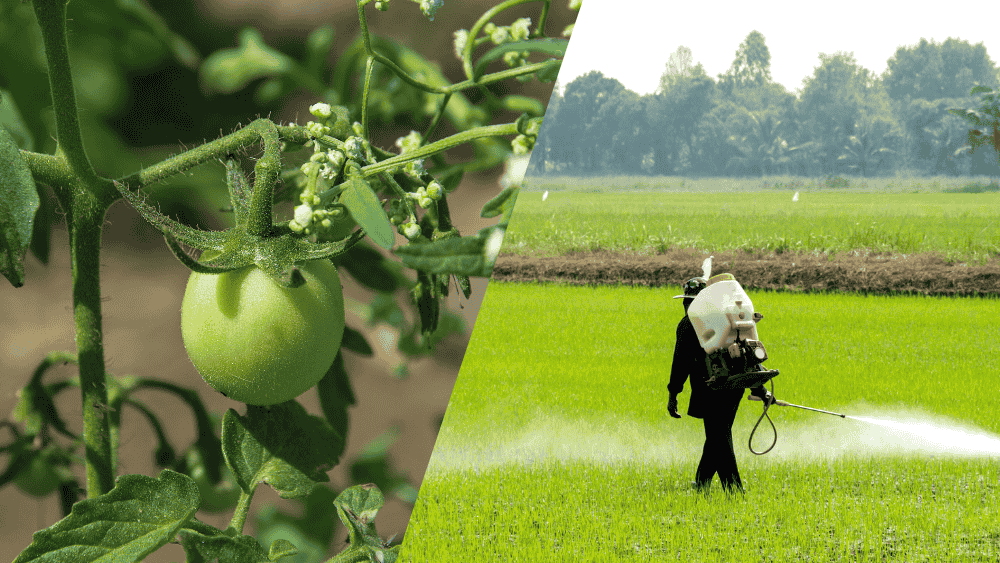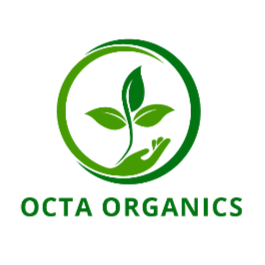
Natural Farming vs Chemical Farming: Which is Better for Farmers?
Share
The constant rise in population and consumer demands urged the agriculture industry and farmers to produce more food to meet the requirements.
For an uninterrupted farming process and higher yields, chemical fertilizers, pesticides, herbicides, and more came into existence. However, excess use of chemical products introduced several threats to crops, soil health, the environment, and humans as well. As a safer alternative, organic farming was introduced.
Natural or chemical free farming brought a new-age revolution to the agricultural industry, making the processes used for growing plants safer, more efficient, and beneficial. But this gave rise to the most prominent debate among farmers to date:
Natural farming vs. chemical farming—Which one is the best?
Both natural farming and chemical farming bring along unique benefits and certain limitations, making it difficult for farmers to decide which is better for them.
With this comprehensive guide, we’re going to end this debate once and for all. We will delve into the intricate details of both these approaches, unravelling their advantages, disadvantages, and most widely used solutions by farmers.
Natural Farming vs. Chemical Farming: The Basics
Before we dive directly into comparing natural farming vs. chemical farming, it is essential to define them and understand their basics.
What is Chemical Farming?
Chemical farming is a conventional farming approach that relies heavily on the use of chemical-based or synthetic fertilizers, pesticides, supplements, and more. These chemicals are mainly used to maximize crop yields, speed up plant growth, and protect plants from diseases and infections, but often cause severe side effects.
What is Natural or Chemical Free Farming?
Natural farming is an agricultural method that embraces holistic and sustainable practices for growing crops that are completely safe for the environment. It avoids the use of synthetic chemicals and relies on natural processes and solutions, such as biological control methods, crop rotation, and organic pesticides for farming.
Natural Farming vs. Chemical Farming: Pros and Cons
The entire comparison of natural farming vs. chemical farming is completely based on the advantages and disadvantages these approaches bring along. While each one of them offers unique benefits, there are some negative aspects of both of these methods that every farmer must consider before choosing the best one.
Pros of Natural Farming
Organic farming, characterized by its commitment to natural processes and sustainability, presents a wide range of advantages.
Enhanced Soil Fertility: Organic farming prioritizes soil health and fertility through practices like crop rotation and the use of organic pesticides for farming.
Minimal Environmental Impact: By preventing the use of synthetic solutions, natural farming minimizes the environmental impact associated with chemicals.
Healthier Produce: Chemical free farming emphasizes the use of natural pesticides and fertilizers, resulting in produce that is healthier, safer, and rich in nutrients.
Disease Resistance: Natural farming practices focus on keeping plants safe from diseases and infections for the long term and improving their resilience.
Cons of Natural Farming
Although natural farming brings along a few disadvantages, they are often overshadowed by the numerous benefits this method offers.
Lower Yields: Natural farming typically yields lower outputs. But the yield quality and value are quite higher when we compare natural farming vs. chemical farming.
Land Use Efficiency: Natural farming may require more land to produce the same yield quantity as chemical farming. But the soil health is not compromised over time.
Transition Challenges: Farmers transitioning from chemical to natural farming may face some challenges initially, but the long-term benefits are more prominent.
Pros of Chemical Farming
Chemical farming has offered several advantages and played a pivotal role in meeting the global food demand before the introduction of chemical free farming.
Increased Productivity: Chemical farming has significantly boosted crop yields, ensuring a consistent and plentiful food supply to meet the growing demands.
Economic Viability: The use of chemical-based solutions, including fertilizers and pesticides, has made large-scale agriculture economically viable.
Year-round Availability: Chemical farming supports the production of crops throughout the year, eliminating challenges due to seasonal variations.
Cons of Chemical Farming
While the advantages of chemical farming make it look like a better option than natural farming vs. chemical farming, it has some major disadvantages.
Non-target Species: Chemicals may harm non-target species, including insects and animals. This can disrupt natural ecosystems and lead to declines in biodiversity.
Soil degradation: Continuous use of chemicals can lead to soil degradation. The loss of soil fertility affects sustainability and can result in poor crop yields over time.
Food Contamination: Chemical residues and contaminants accumulate on food produce during chemical farming practices that pose severe health risks to humans.
Natural Farming vs. Chemical Farming: Common Solutions
Due to their significantly different nature, practices, and techniques, both these approaches offer unique solutions that are used for different purposes. Knowing about the most commonly used solutions offered by each method is important while comparing natural farming vs. chemical farming and choosing the right approach.
Common Natural Farming Solutions
Natural farming offers a wide range of agricultural solutions, such as organic pesticides for farming, to help farmers overcome various challenges.
Organic Miticide: An organic miticide is a chemical-free pesticide used to get rid of mites, aphids, and other insects that hinder plant growth and destroy healthy yields.
Organic Virucide: To safeguard plants from harmful viruses, an organic virucide emerges as an effective solution for farmers without relying on chemical pesticides.
Organic Fungicide: Fungal infections are most common in plants. By using an organic fungicide, farmers ensure long-term plant safety from these infections.
Common Chemical Farming Solutions
Multiple chemical solutions have been used in agricultural practices for a long time, but most of them have severe side effects on plants.
Urea: Urea is a widely used chemical fertilizer that acts as a source of Nitrogen for plants. While it promotes plant growth, excessive use can damage roots and leaves.
Triazoles: Triazoles are systemic fungicides that inhibit fungal growth in plants. But due to their high toxicity, using an organic fungicide is preferred by farmers.
PGRs: Plant Growth Regulators or PGRs are chemicals that improve plant metabolism and development, but incorrect application causes delayed flowering.
Natural Farming vs. Chemical Farming: Which is the Best
Ultimately, choosing the best one between natural farming vs. chemical farming is not a simple decision; it demands a nuanced understanding of their advantages, disadvantages, and roles in modern agricultural practices. But when compared side by side, natural farming emerges as a significantly better option for farmers today.
With the increasing awareness about the severe side effects of chemical farming, farmers must adopt a natural, chemical-free farming approach. Octa Organics supports modern farmers in this venture, empowering them with reliable solutions, such as organic pesticides for farming, for a sustainable, safer, and healthier future.

